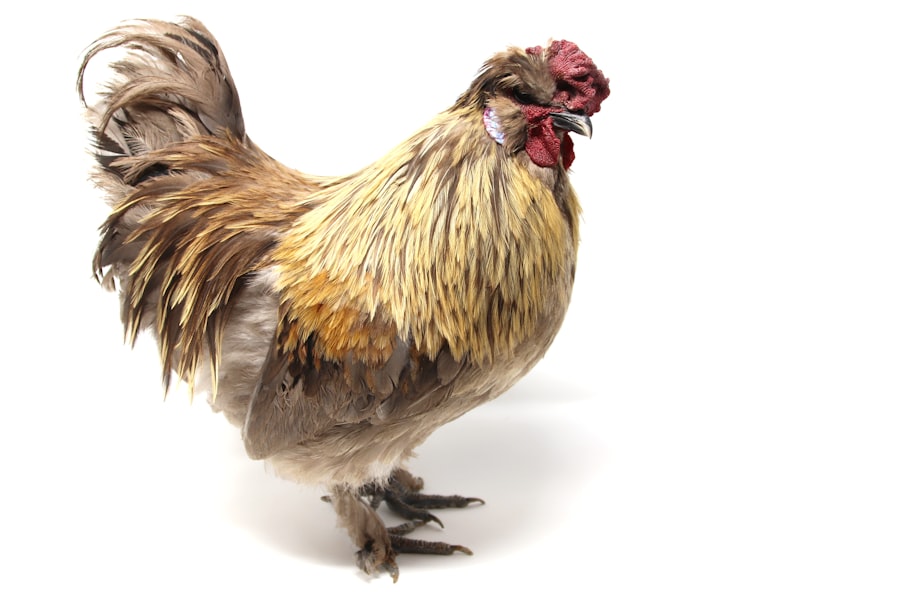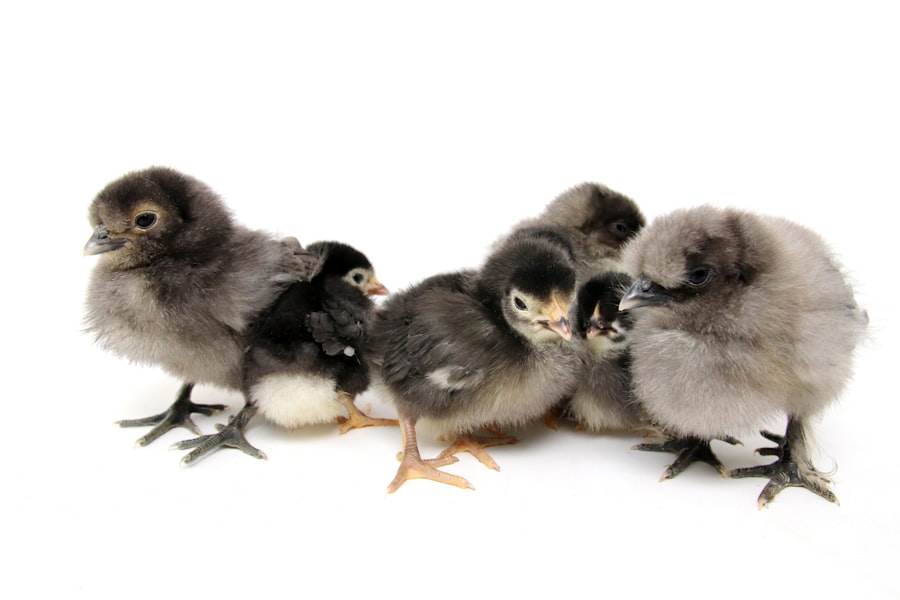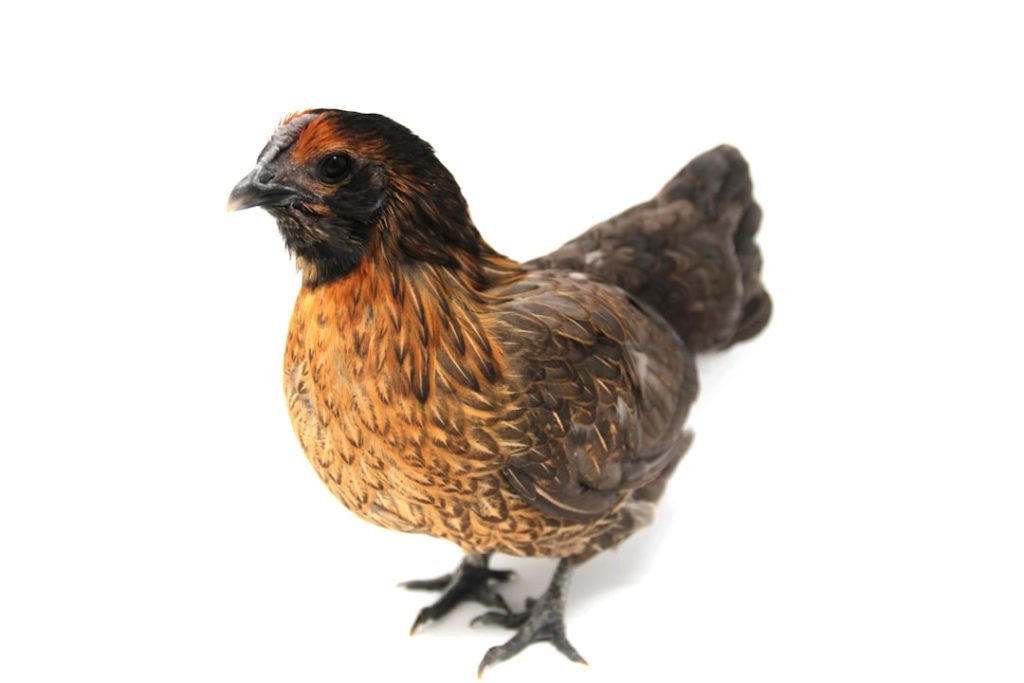Broody chickens are hens that exhibit a strong instinctual behavior to incubate and hatch eggs. This behavior is triggered by hormonal changes and is characterized by the hen’s persistent sitting on a clutch of eggs, often neglecting to eat, drink, or interact with other chickens. Broodiness can be initiated by the presence of eggs in a nest, regardless of their fertility status.
This instinct has been reinforced through generations of selective breeding in certain chicken breeds. The broody behavior of hens presents both advantages and challenges for poultry keepers. While broody hens can be beneficial for natural reproduction and chick-rearing, reducing the need for artificial incubation, they can also become aggressive and territorial.
This behavior can complicate egg collection and flock management. A thorough understanding of broody chicken behavior is crucial for effective flock management and for utilizing the natural instincts of these hens to benefit the overall poultry operation.
Table of Contents
Key Takeaways
- Broody chickens are hens that exhibit a strong desire to sit on and hatch eggs, often becoming protective and aggressive during this time.
- Some common characteristics of broody chicken breeds include a strong maternal instinct, a tendency to go broody frequently, and a gentle and nurturing nature.
- Popular broody chicken breeds include Silkies, Orpingtons, and Cochins, known for their broodiness and excellent mothering abilities.
- Tips for managing broody chickens include providing a separate nesting area, collecting eggs frequently, and using a broody coop to encourage hens to hatch eggs.
- Breeding broody chicken breeds involves selecting hens with strong broody tendencies and providing a suitable environment for them to raise their chicks.
- Dealing with broody chicken behavior may involve gently breaking the broodiness, providing a distraction, or allowing the hen to hatch and raise chicks if desired.
- When choosing the right broody chicken breed, consider factors such as temperament, egg production, and the desire for broodiness to find the best fit for your needs.
Characteristics of Broody Chicken Breeds
Characteristics of Broody Chicken Breeds
Certain breeds of chickens are more predisposed to broodiness than others. Broody chicken breeds typically have a strong maternal instinct and a tendency to sit on eggs for extended periods of time. These breeds are often characterized by their gentle and nurturing nature, making them excellent mothers for raising chicks.
Physical Characteristics
Additionally, broody chicken breeds tend to have a larger body size and a heavier build, which allows them to effectively cover and warm a clutch of eggs.
Desirable Traits
In addition to their broody behavior, these breeds often have other desirable characteristics such as good egg production, docile temperament, and attractive plumage. Many broody chicken breeds are dual-purpose, meaning they are suitable for both egg production and meat consumption.
Popularity Among Chicken Keepers
These breeds are popular choices for small-scale and backyard chicken keepers who are looking to raise their own chicks and maintain a sustainable flock.
Popular Broody Chicken Breeds

Several popular chicken breeds are known for their broody behavior and make excellent choices for those looking to raise chicks naturally. The Orpington is a well-known broody breed that comes in a variety of colors and is prized for its gentle nature and large size. The Silkie is another popular broody breed with a unique appearance, featuring fluffy feathers and a friendly disposition.
Cochins are also renowned for their broodiness and make excellent mothers for hatching and raising chicks. Other popular broody chicken breeds include the Australorp, Sussex, and Wyandotte. These breeds are valued for their broody behavior as well as their egg-laying capabilities and overall hardiness.
Whether you are looking to start a small backyard flock or expand your existing flock, choosing a broody chicken breed can be a rewarding experience that allows you to raise chicks naturally and sustainably.
Tips for Managing Broody Chickens
Managing broody chickens requires patience and understanding of their natural instincts. When a hen becomes broody, it is important to provide her with a suitable nesting area where she can safely sit on her clutch of eggs. This nesting area should be secluded and quiet, allowing the broody hen to focus on her maternal duties without disturbance from other chickens.
It is also important to regularly check on the broody hen to ensure she is healthy and has access to food and water. Broody hens can become so focused on sitting on their eggs that they neglect their own needs, so it is crucial to encourage them to take short breaks from the nest to eat, drink, and stretch their legs. Additionally, collecting eggs from the nesting area on a regular basis can help prevent the accumulation of too many eggs and reduce the risk of other hens becoming broody.
If you do not want the broody hen to hatch eggs, you can try to break her broodiness by gently removing her from the nest several times a day and providing her with distractions such as dust baths or access to a different area of the coop. However, if you do want her to hatch eggs, you can provide her with fertilized eggs from your own flock or purchase them from a reputable source. By managing broody chickens effectively, you can harness their natural instincts for the benefit of your flock.
Breeding Broody Chicken Breeds
Breeding broody chicken breeds requires careful selection of parent stock with strong brooding instincts. When choosing breeding pairs, look for hens and roosters that come from lines known for their broodiness and maternal qualities. By selecting for these traits over several generations, you can strengthen the brooding instinct within your flock and produce offspring that are more likely to exhibit broody behavior.
When breeding broody chicken breeds, it is important to provide suitable nesting areas for broody hens to lay and incubate their eggs. This can be achieved by providing nesting boxes with comfortable bedding and privacy to encourage broodiness. Additionally, it is essential to monitor the health and well-being of broody hens throughout the breeding process to ensure successful hatching and chick rearing.
By selectively breeding broody chicken breeds, you can maintain and enhance their natural instincts while producing offspring that are well-suited for natural reproduction within your flock. Breeding broody chicken breeds can be a rewarding endeavor that allows you to preserve valuable traits within your flock and raise healthy, sustainable chickens.
Dealing with Broody Chicken Behavior

Dealing with broody chicken behavior requires patience and understanding of their natural instincts. When a hen becomes broody, she may exhibit aggressive behavior towards other chickens in an effort to protect her clutch of eggs. It is important to provide enough space within the coop to allow broody hens to sit on their nests without causing conflict with other chickens.
Additionally, it is important to monitor the health of broody hens and provide them with regular access to food and water. Broody hens can become so focused on sitting on their eggs that they neglect their own needs, so it is crucial to encourage them to take short breaks from the nest to eat, drink, and stretch their legs. If you do not want the broody hen to hatch eggs, you can try to break her broodiness by gently removing her from the nest several times a day and providing her with distractions such as dust baths or access to a different area of the coop.
However, if you do want her to hatch eggs, you can provide her with fertilized eggs from your own flock or purchase them from a reputable source. By understanding and effectively managing broody chicken behavior, you can ensure the well-being of your flock while harnessing their natural instincts for the benefit of your chicken keeping experience.
Choosing the Right Broody Chicken Breed
In conclusion, choosing the right broody chicken breed can be a rewarding experience that allows you to raise chicks naturally and sustainably within your flock. Understanding the behavior of broody chickens is essential for effectively managing them and harnessing their natural instincts for the benefit of the flock. By selecting popular broody chicken breeds with strong maternal instincts, such as Orpingtons, Silkies, Cochins, Australorps, Sussex, or Wyandottes, you can ensure that your flock has access to excellent mothers for hatching and raising chicks.
Managing broody chickens requires patience and understanding of their natural instincts, but with proper care and attention, you can successfully raise healthy chicks within your flock. Breeding broody chicken breeds requires careful selection of parent stock with strong brooding instincts and providing suitable nesting areas for broody hens to lay and incubate their eggs. By selectively breeding broody chicken breeds, you can maintain and enhance their natural instincts while producing offspring that are well-suited for natural reproduction within your flock.
In dealing with broody chicken behavior, it is important to provide enough space within the coop for broody hens to sit on their nests without causing conflict with other chickens. Additionally, monitoring the health of broody hens and providing them with regular access to food and water is crucial for their well-being. In conclusion, choosing the right broody chicken breed involves understanding their behavior, managing them effectively, breeding them selectively, and dealing with their natural instincts.
By doing so, you can ensure a healthy and sustainable flock while enjoying the benefits of raising chicks naturally within your own backyard or small-scale farm.
If you’re interested in broody chicken breeds, you may also want to learn about the incubation period for goose eggs. Check out this article on what is the incubation period for goose eggs to expand your knowledge on hatching and raising poultry.
FAQs
What are broody chickens?
Broody chickens are hens that have a strong instinct to sit on and hatch a clutch of eggs. They will often become protective and aggressive, and may stop laying eggs during this time.
What are some common broody chicken breeds?
Some common broody chicken breeds include Silkies, Orpingtons, Cochins, and Sussex. These breeds are known for their strong maternal instincts and tendency to go broody.
How can I tell if my chicken is broody?
Broody chickens will often spend a lot of time sitting in the nesting box, puffing up their feathers, and making clucking sounds. They may also become aggressive when approached and may refuse to leave the nest.
What should I do if I have a broody chicken?
If you have a broody chicken and do not want her to hatch eggs, you can try to break her broodiness by removing her from the nesting box and keeping her in a separate area for a few days. You can also try placing ice packs or frozen vegetables in the nesting box to discourage her from sitting.
Are broody chickens good for hatching eggs?
Yes, broody chickens are excellent for hatching eggs. They will diligently sit on the eggs, keep them warm, and turn them as needed. This natural incubation process can be a great way to hatch chicks without the need for an artificial incubator.
Meet Walter, the feathered-friend fanatic of Florida! Nestled in the sunshine state, Walter struts through life with his feathered companions, clucking his way to happiness. With a coop that’s fancier than a five-star hotel, he’s the Don Juan of the chicken world. When he’s not teaching his hens to do the cha-cha, you’ll find him in a heated debate with his prized rooster, Sir Clucks-a-Lot. Walter’s poultry passion is no yolk; he’s the sunny-side-up guy you never knew you needed in your flock of friends!







